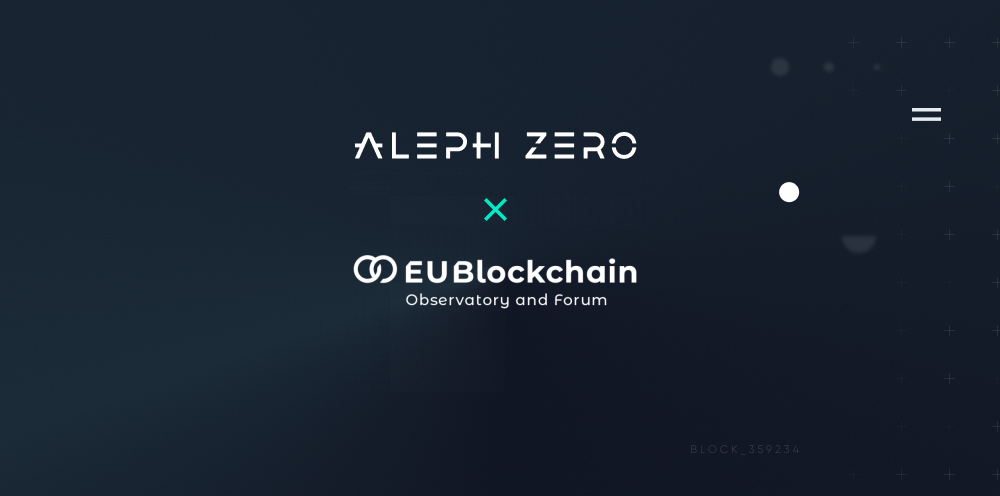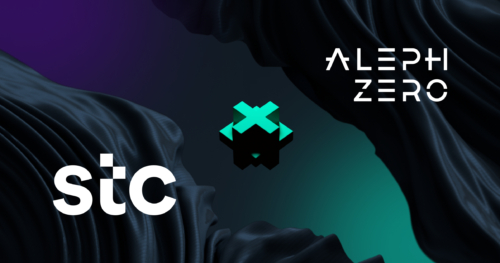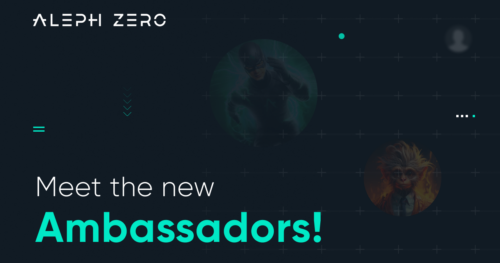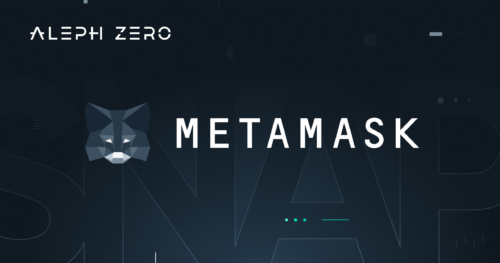Aleph Zero Co-authors Report With EUBOF on Blockchain and Healthcare
Feb 10, 2022

One of the most promising use cases for blockchain technology is its application in the healthcare sector. Matthew Niemerg of Aleph Zero has recently cooperated with the European Blockchain Observatory and Forum—a European Commission initiative to accelerate blockchain innovation— in co-creating a report describing the potential for positive disruption in this sector.
The European Union Blockchain Observatory and Forum (EUBOF) was brought to life at the behest of the European Commission in 2018. Since then, the organization has served as a think-tank bringing together some of the most insightful scientists and commentators involved in the tightening relationship between regulators and Web 3.0. In 2021 EUBOF invited Matthew Niemerg, one of the co-founders of Aleph Zero, to join its Expert Panel. Considering that many of the goals of EUBOF and Aleph Zero align, we approached this invitation with great enthusiasm.
Recently, EUBOF created a report that explores in great detail the ramifications and potential applications of blockchain technology in the healthcare sector. We are proud that Matthew Niemerg assisted in the creation of this document. The paper created in the wake of the COVID-19 pandemic shows numerous use cases for the technology. These challenges have been present in the sector for years, yet only over the past two years in the face of a global pandemic have they become exacerbated to the point where the application of novel technological solutions has been expedited.
The Findings of the Report
The report, titled “Blockchain Application in the Healthcare Sector,” identifies several key areas where blockchain technology has already found a use case or is set to become the default technological layer offering a viable solution. These critical areas include solving challenges revolving around data security, anti-counterfeiting measures in the pharmaceutical sector, streamlining supply chains, verifying medical credentials, and pandemic management capabilities. The report’s creator drafted a survey distributed among healthcare professionals to voice their opinion on the opportunities and challenges of blockchain applicability regarding the abovementioned concerns. The survey consisted of 20 questions and involved 34 industry professionals. The respondents saw blockchain as an effective solution for ensuring:
Solutions
- Data transparency (91.1%)
- Medical and pharmaceutical supply chains (88.2%)
- Data immutability (85.3%)
- Collaboration between manufacturers, suppliers, retailers, and end consumers (85.3%)
- Medical records sharing (79.4%)
- Secure payment transactions (76.5%)
- Record accuracy (73.5%)
- Data interoperability (70.6%)
- Identity management (70.6%)
- The use of smart contracts for insurance purposes (67.7%)
- Data management (61.7%).
These promising survey results reveal fertile ground for the technologies tamper-resistant nature. It is not without its challenges, as most responders voicing their concern over the following matters:
Challenges
- Scalability issues (61.8%)
- Adoption by end-users (58.8%)
- Lack of government support (58.8%)
- Need for policy considerations for deploying blockchain (58.8%)
- Lack of awareness on such solutions (58.8%)
- Maintenance (55.9%)
- Technical challenges (52.9%)
- Cost of operations (52.9%).
Despite these concerns, the findings of the report state: “most of the respondents (79.4%) agreed that the COVID19 pandemic management accelerated the process of exploring and adopting blockchain.”
“The latest EUBOF report presents a wide range of practical blockchain implementations in healthcare. As both a physician and innovator, I’m particularly excited about using blockchain to democratize access to new therapies. It will provide improved transparency in medical research, and create new opportunities for collaboration. I believe that 2022 will be the most transformative year for those changes to come.” – Oskar Kiwic, MD.
Aleph Zero and Healthcare
Introducing blockchain solutions to the healthcare sector is an application of the technology we at Aleph Zero are fully committed to exploring. We are proud of Matthew Niemerg and his ongoing involvement with EUBOF. The report’s findings have been inspirational for our mission. Even at this early stage, we can identify several aspects in which the Aleph Zero consensus protocol can bring about a more transparent, patient-centric healthcare system.
If you wish to read the full report please follow this link.


